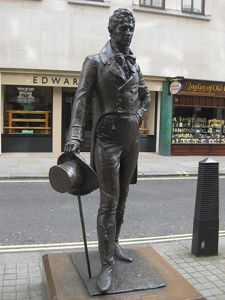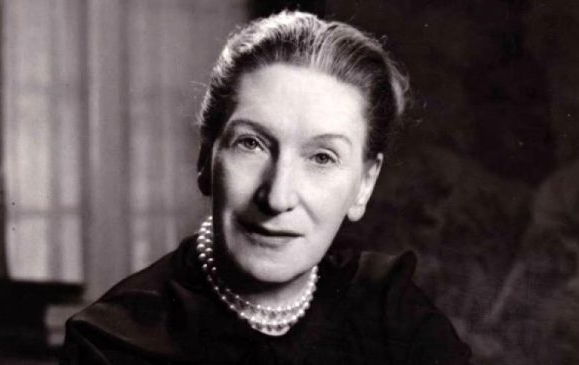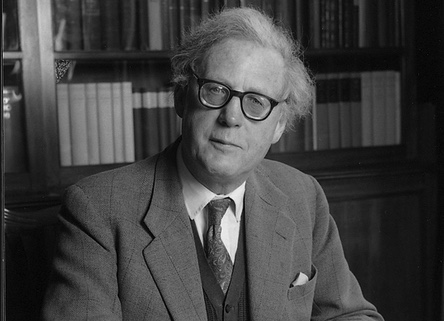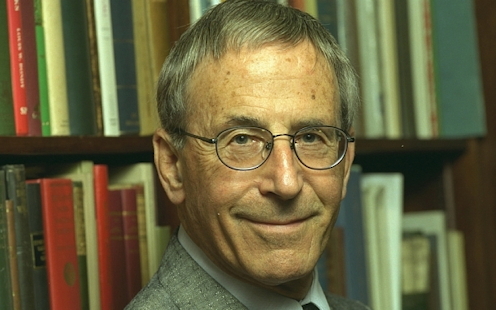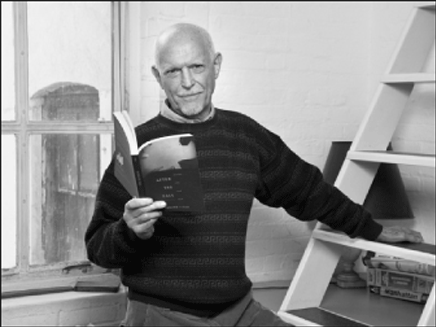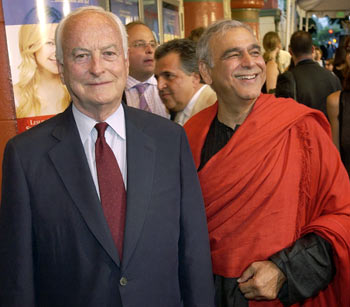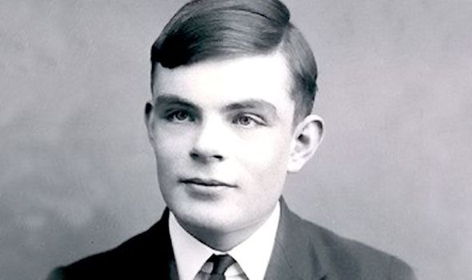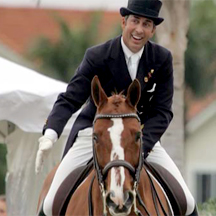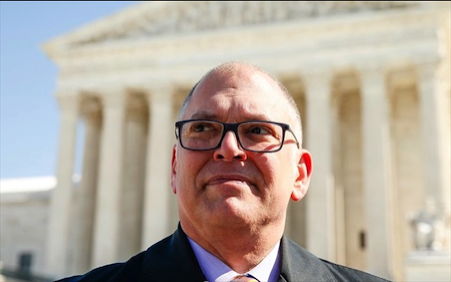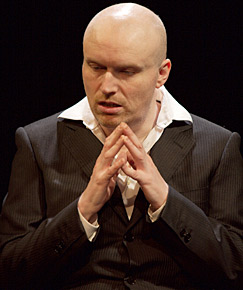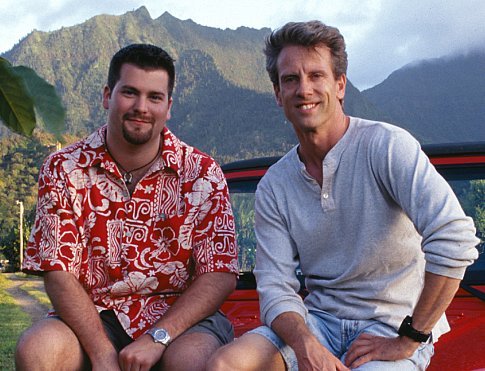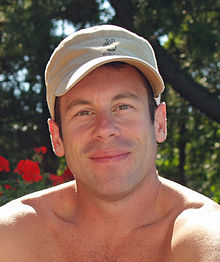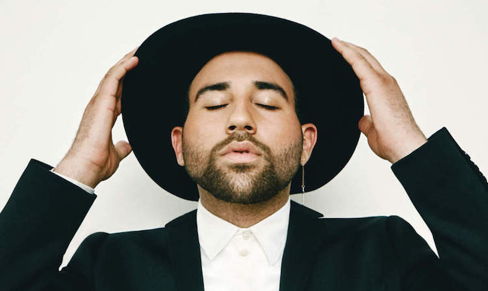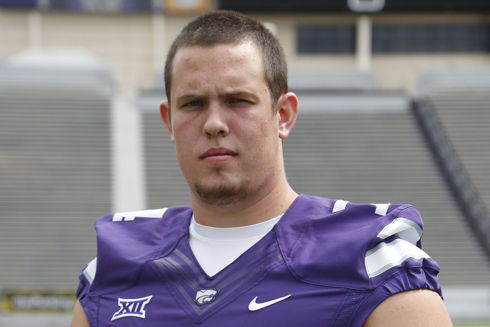|
presents THIS DAY IN GAY HISTORY based on: The White Crane Institute's 'Gay Wisdom', Gay Birthdays, Gay For Today, Famous GLBT, glbt-Gay Encylopedia, Today in Gay History, Wikipedia, and more …
Collected by Ted June 7 [{(o)}]|[{(o)}]|[{(o)}]|[{(o)}]| [{(o)}]|[{(o)}]
1778 – Beau Brummell (born George Bryan Brummell) the British fashionplate and dandy, was born today (d.1840). Brummell is included here because he epitomizes the dandy, a type that has always characterized one aspect of Gay life from Oscar Wilde and Ronald Firbank to Waugh's Anthony Blanche and the ubiquitous queen who lives in the poshest apartment on the upper east side of every fashionable city in the world. 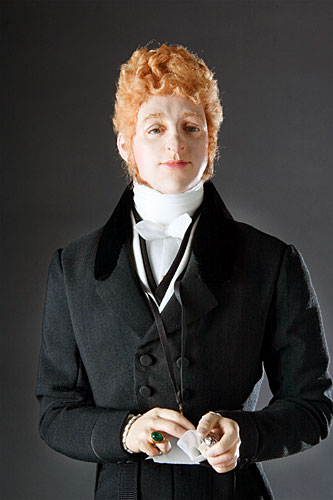 Beau Brummel porcelain statuette Brummell loved fine clothes and lived beyond his means to attain them. He was oh so witty and oh so bitchy. So he died in an insane asylum, hounded by his creditors. His bons mots have survived him. Asked if he ever ate vegetables, he replied that he "once ate a pea." He also claimed to have caught a cold from a "damp stranger." Beau Brummell is credited with introducing and establishing as fashion the modern man's suit, worn with a tie. He claimed five hours to dress, and recommended that boots be polished with champagne.
1899 – The Anglo-Irish novelist Elizabeth Bowen was born on this date (d.1973). Like the outlines of her own life, the novels of Elizabeth Bowen reflect marriage at the center of a woman's life, with the love between women a primal need in adolescence and in widowed middle age. Elizabeth Bowen was born on 7 June 1899 in Dublin, Ireland. Her parents later brought her to Farahy, County Cork where she spent her summers. When her father became mentally ill in 1907, she and her mother moved to England, eventually settling in Hythe. After her mother died in 1912, Bowen was brought up by her aunts. After some time at art school in London she decided that her talent lay in writing. She mixed with the Bloomsbury Group, becoming good friends with Rose Macaulay, who helped her find a publisher for her first book, Encounters (1923).In 1923 she married Alan Cameron, an educational administrator who subsequently worked for the BBC. The marriage has been described as "a sexless but contented union". She had various extra-marital relationships, including one with Charles Ritchie, a Canadian diplomat seven years her junior, which lasted over thirty years. She also had an affair with the Irish writer Seán Ó Faoláin and a relationship with the American poet May Sarton. Bowen and her husband first lived near Oxford, where they socialized with Maurice Bowra, John Buchan and Susan Buchan, and where she wrote her early novels, including The Last September (1929). Following the publication of To the North (1932) they moved to London where Bowen would go on to write The House in Paris (1935) and The Death of the Heart (1938). During and after the war she wrote among the greatest expressions of life in wartime London, The Demon Lover and Other Stories (1945) and The Heat of the Day (1948). She was awarded the CBE in 1948. Elizabeth Bowen died of lung cancer in a London hospital in February 1973, aged 73. When you love someone, all your saved-up wishes start coming out.- Elizabeth Bowen
1916 – Patrick Trevor-Roper (d.2004), British eye surgeon and pioneer gay rights activist, was one of the first people in the United Kingdom to "come out" as openly gay, and played a leading role in the campaign to repeal the UK's anti-gay laws. He was born in Northumberland, the son of a doctor, and the brother of historian Hugh Trevor-Roper. He was educated at Charterhouse, Cambridge University and the Westminster Medical School. During World War II he served in the Royal New Zealand Army Medical Corps in the Mediterranean. After the war he became a specialist in ophthalmic surgery, and divided his working life between work in public hospitals and a lucrative private practice in London. In 1955 Trevor-Roper agreed to appear as a witness before the Wolfenden Committee, which had been appointed by the British government to investigate (among other things) whether male homosexuality should remain a crime. He was one of only three men who could be found to appear as openly-gay witnesses before the Committee. The others were the journalist Peter Wildeblood (who had been convicted of a homosexual offence) and Carl Winter, director of the Fitzwilliam Museum. 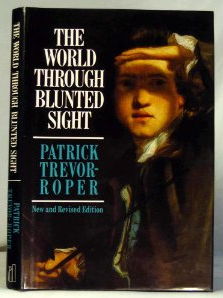 Trevor-Roper told the Wolfenden Committee that the majority of gay men led normal and well-adjusted lives, posed no threat to children or public morality, and that homosexuality was not a physical or mental illness. He pointed out that the existing laws did nothing but encourage blackmailers. He argued that the age of consent should be lowered to 16, and told the committee that many young gay men committed or attempted suicide because of isolation or depression induced by homophobia. These were highly controversial views in the 1950s. Trevor-Roper's testimony helped persuade the Committee to recommend that male homosexuality should be decriminalised, which was finally done, after a long political struggle, in 1967. Trevor-Roper remained an active gay rights activist, campaigning in particular for the abolition of the discriminatory age of consent laws. (The 1967 law set the age of consent for male homosexuals at 21, while the heterosexual age of consent was 16.) When the AIDS epidemic appeared in the early 1980s, Trevor-Roper was one of the founders of the Terrence Higgins Trust, the United Kingdom's leading AIDS service organisation, which held its first meeting at his home. The other cause to which Trevor-Roper devoted himself was better access to ophthalmic medicine, both in the United Kingdom and in African countries. He campaigned successfully for the repeal of British laws which prevented the sale of cheap spectacles, against the resistance of the opticians' lobby. In 1983, he helped finance Peter Risdon in his successful challenge to the opticians' monopoly in the UK, a challenge that led directly to the legalisation of the sale of reading glasses without prescription. He founded the Haile Selassie Eye Hospital in Addis Ababa, Ethiopia, and assisted in the founding of similar hospitals in Nigeria and Sierra Leone. He was also active in heritage conservation causes in the United Kingdom.
1919 – A California appellate court upholds the sodomy conviction of a man. The mother of his consenting partner had drilled holes in his bedroom walls to watch.
1923 – Martyn Goff (d.2015) was a British literary administrator, author, and bookseller. He made a significant contribution to the organisation and popularity of the Booker Prize for many years, and was also involved in efforts to increase literacy and book ownership, particularly among children. Born in 1923, he grew up in Hampstead, London. His father, Jacob, was a Russian fur dealer who had emigrated to Britain and became a supplier to department stores. After studying at Clifton College in Bristol, he won a place at Oxford University to study English but the intervention of World War Two meant he joined the RAF, as a Lancaster bomber wireless operator serving in the Middle East. While there, he edited a magazine that included book and music reviews, and wrote a letter to the poet Siegfried Sassoon. The poet, while writing later to John Maynard Keynes, suggested that this letter was instrumental in the poet's going back to writing after a barren spell of two years. Goff was demobilised in 1946. In 1948, Goff opened his first bookshop, in St Leonard’s-on-Sea,East Sussex. after working unpaid for a period in a bookshop in Charing Cross, London, to gain experience as a bookseller. He later started two more bookshops on the English south coast, and relocated to Sussex in 1950, buying an existing bookshop business in Banstead. After he retired from the Trust in 1988, and returned to bookselling, and became the chairman of Henry Sotheran, a specialist seller of antiquarian works, in Sackville Street, Piccadilly. Goff was involved in a number of projects which encouraged people to read, buy, and own books, as he 'wanted young people to feel that it was as exciting to spend money on a new book as to spend it on the latest music album or fashion trend.' His main platform was the National Book League (NBL), later renamed the Book Trust, of which he was the director from 1970-1988. In 1971, he launched a literary festival in London named the 'Bedford Square Book Bang' which had a large attendance, despite unhelpful weather. While at the Book Trust, Goff also started a tradition of presenting the Queen with a package of books at Balmoral every Summer - his intention being to make a public connection between books and a high-profile establishment figure. He took over the administration of the Booker Prize (later the Man Booker) early in its life, in 1973. Under Goff’s tenure, the Prize became a vehicle for promoting literary reputations, and it became significantly more successful in one of its original aims of increasing book sales. While raising sales had been an objective of the Prize since its inception in 1969, in practice, before his arrival, that had only been modestly achieved. He was also an author of nine novels. His first, The Plaster Fabric, appeared in 1957. It was one of four of his novels (the others being The Youngest Director, Indecent Assault and Tar and Cement) which dealt with gay themes. At the time, Homosexuality in Britain remained a criminal offence, and Goff’s publisher is reported to have said to him, "You know this book could land both of us in the Old Bailey. You’re not worried?" On hearing Goff say that he was not, the publisher responded by saying. "Good — then neither am I." The book received a very positive review from John Betjeman, and it has been argued that the bok's reception helped move public opinion towards legal reform after The Wolfenden Report was published in 1959. Goff is said to have acquired, and relished, a reputation as a dandy. He had three main interests: literature, music, and the arts, particularly picture collecting. He belonged to several clubs. His partner, Rubio Tapani Lindroos, a Finnish poet who moved to London in 1970, died in 2014
1924 – The American poet and memoirist Edward Field was born on this date (d.2018). Field was born in Brooklyn, New York, and grew up in Lynbrook, Long Island, New York, where he played cello in the Field Family Trio, which had a weekly radio program on WGBB Freeport. He served in World War II in the 8th Air Force as a navigator in heavy bombers, and flew 25 missions over Germany. He began writing poetry during World War II, after a Red Cross worker handed him an anthology of poetry. In 1963 his book, Stand Up, Friend, With Me, was awarded the prestigious Lamont Poetry Prize and was published. In 1992, he received a Lambda Award for Counting Myself Lucky, Selected Poems 1963-1992. Other honors include the Shelley Memorial Award, a Prix de Rome, and an Academy Award for the documentary film To Be Alive, for which he wrote the narration. In 1979, he edited the anthology A Geography of Poets, and in 1992, with Gerald Locklin and Charles Stetler, brought out a sequel, A New Geography of Poets. Field came out fully as a gay poet in genial poems that are of a piece with his other work. Field's gay manifesto is "The Two Orders of Love." In this poem, he sees homosexuality as natural as heterosexuality and as necessary: Nature needs both to do its work and humankind, confusing two separate orders of love, makes rules allowing only one kind and defies the universe. He and his partner Neil Derrick, long-time residents of Greenwich Village, wrote a best-selling historical novel about the Village, The Villagers. Field and Derrick, his companion, mate, and other half since 1959 – "with a two-year hiatus when we broke up, and then we straightened out our heads" – were a familiar sight in Greenwich Village, walking together, Neil’s hand on Edward’s shoulder. Derrick had been blind since a brain-tumor operation also in 1972. Derrick died on January 5, 2018. In 2019, Field's niece Diane Weishe produced the animated film "Minor Accident of War", inspired by his memories of survival during the World War II. Designed by Piotr Kabat, the film is narrated by Field.
1928 – Born: James Ivory is an award-winning American film director, best known for the results of his long collaboration with Merchant Ivory Productions, which included both Indian-born producer Ismail Merchant and screenwriter Ruth Prawer Jhabvala. Their films won six Academy Awards. Ivory was born in Berkeley, California. He was educated at the University of Oregon, majoring in Architecture and Fine Arts and then at the University of Southern California Film School. In 1961, Ivory created the film production company, Merchant Ivory Productions, with Indian-born producer Ismail Merchant and Ruth Prawer Jhabvala who served as the screenwriter for many of their productions. Until Merchant's death in 2005, the company produced a number of award winning films. Merchant was also Ivory's long-term life partner. Their professional and romantic partnership lasted from the early 1960s until Merchant's death in 2005. In 1985 A Room with a View, based on the E. M. Forster novel, was nominated for eight Academy Awards, including Best Picture and Best Director, and won three. In 1987, Maurice received a Silver Lion Award for Best Director at the Venice Film Festival as well as Best Film Score for Richard Robbins and Best Actor Awards for co-stars James Wilby and Hugh Grant. This was followed in 1990 by Mr and Mrs Bridge, which was adapted by Ruth Jhabvala from the novels by Evan S. Connell. This film received an Oscar nomination for best Actress (Joanne Woodward), as well as Best Actress and Best Screenplay from the New York Film Critics Circle. In 1992 Ivory directed another Forster-adapted film, Howards End. The film was nominated for nine Academy awards, including Best Picture and Best Director. Howards End was immediately followed by The Remains of the Day, which in turn was nominated for eight Academy Awards, including Best Picture and Best Director.
1937 – Colorado increases the minimum fine for possession of sex toys and requires defendants to pay all court costs.
1954 – On this date the great minds of the 20th century, the British mathematician and computer scientist Alan Turing, died from cyanide poisoning (b. 1912). This was 18 months after being given libido-reducing hormone treatments as a punishment for homosexuality.
1955 – Jens Rydström is a Swedish history professor, recipient of the John Boswell prize, member of the Committee of Lesbian & Gay History, American History Association, 2005. From 1996 to 1999, Jens Rydström organized and led the Queer Seminar at Stockholm University, an interdisciplinary forum in which scholars introduced Queer Theory to Sweden and contributed to the development of research and education in this field. 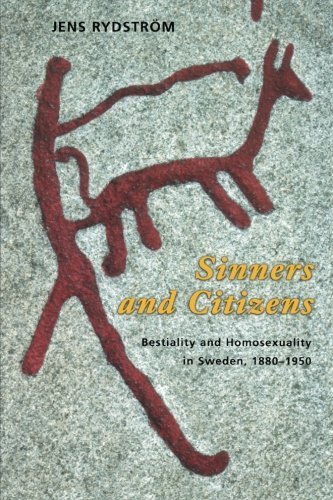 Rydströmʼs award-winning Sinners and Citizens: Bestiality and Homosexuality in Sweden, 1880–1950, based on over 2,300 court cases, was a comprehensive study of a shift from rural to urban male sexuality. A joint Scandinavian project resulted in Criminally Queer: Homosexuality and Criminal Law in Scandinavia, 1842–1999 which he co-edited with Kati Mustola. Since 2005 Rydström has been studying the history of laws on registered partnership in Scandinavia, which in 2011 resulted in a book titled Odd Couples: A History of Registered Partnership and Gay Marriage in Scandinavia . The project includes a historical study of the adoption of laws on registered partnership in Scandinavia, an investigation of their effect on society, and an analysis of their impact on gay and lesbian identity. Rydström is currently associate professor at the Centre for Gender Studies at Lund University. His specialties are gender history, gay and lesbian studies, disability studies, and queer theory. Since 2008 he has been conducting research with social anthropologist Don Kulick on disability history in Denmark and Sweden. Rydström analyzes ways in which government agencies and disability movements have dealt with issues of sexuality. His life partner is Martin Loeb.
1956 – Robert Dover is an American equestrian who has had international success in the sport of dressage. Riding from the age of 13, he began specializing in dressage at age 19 and competed in his first Olympics in 1984. He competed in every summer Games between 1984 and 2004, winning four team bronze medals. He also took a team bronze at the 1994 World Equestrian Games. Dover is the most honored dressage rider in the United States, and has been inducted to the United States Dressage Federation Hall of Fame. Outside of competition, Dover founded the Equestrian Aid Foundation in 1996 to assist others in the equestrian world, and hosted a TV show that searched for the next dressage star. From late 2009 to early 2011, Dover served as the Technical/Coach Advisor for the Canadian national dressage team. Dover, who is Jewish, was born in Chicago, Illinois. He was given a horse for his Bar Mitzvah at 13 and was active in Pony Club, graduating at "A" level, the highest level. He decided to specialize in dressage when he was 19. He is openly gay, and his partner is fellow rider Robert Ross. 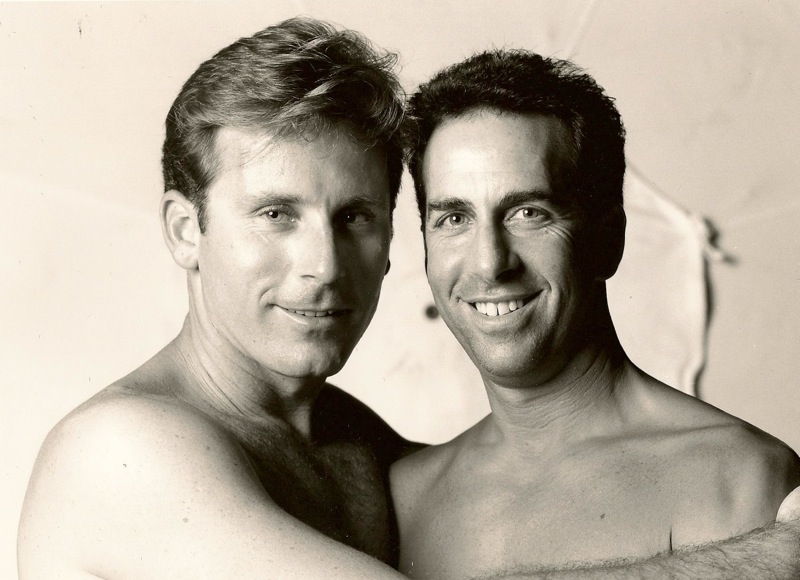 Robert Dover (R) with Robert Ross In 1984, Dover competed in his first Olympic Games at the age of 28. At the Los Angeles Games, he finished 17th individually, and the US team finished 6th. At the 1988 Seoul Olympics, he finished 13th, and the team tied for 6th place. In 1992, at the Barcelona Games, Dover tied for 22nd place, while the American team took the bronze medal. At the 1996 Atlanta Games, the 2000 Sydney Olympics and the 2004 Athens Games the United States dressage team took the bronze medal each time, while Dover finished 25th, 23rd and 6th respectively. He was elected team captain in all six Olympics in which he competed. Of his Olympic experience, Dover says, "The medals themselves aren't the important thing. My memories of the Games and of the entire Olympic experience are, to me, everything."
1966 – Jim Obergefell is an American civil rights activist known as the plaintiff in the Supreme Court case Obergefell v. Hodges, which legalized same-sex marriage in the United States. After his husband, John Arthur, died in 2013, and his inability to legally be considered Arthur's surviving spouse on his death certificate, Obergefell took to court, beginning his years of fighting for LGBT rights. Obergefell graduated from Sandusky High School in 1984 and went on to attend the University of Cincinnati where he earned a degree in secondary education and German. He attended graduate school at Bowling Green State University. Out of college, he was a high school German teacher. After years of hiding his sexuality, finally, when he was in his mid-20s, he came out to his eldest sister. At the time, his mother was dead, but the rest of his family was not too surprised by his announcement. While his dad was not always supportive, he found a strong relationship with his Aunt. Mere months after their wedding, Obergefell's husband John was diagnosed with ALS. Upon meeting with Al Gerhardstein, a local civil rights attorney, they were told that due to Ohio's same-sex marriage ban, Obergefell could not be listed as Arthur's surviving spouse on his death certificate. They later filed a lawsuit, and the Ohio case became known as Obergefell v. Kasich. A federal judge agreed to hear the case the following court day due to Arthur's illness. The judge ruled in Obergefell's favor, but the state of Ohio appealed to a higher court and won, resulting in Obergefell's appeal to the Supreme Court. Arthur died and soon, Obergefell devoted his time and became committed to legalizing same-sex marriage for all with the Supreme Court case Obergefell v. Hodges. The two questions that would drive Obergefell’s appeal to court would be: 1) whether it was constitutional for states to discriminate between gay and straight couples in granting marriage licenses and 2) whether the Constitution required every state to recognize legal marriages of same sex couples who were married in another state. The case took place on Friday, June 26 in 2015 and Obergefell won with the support of five judges. Justice Anthony Kennedy, who wrote the majority opinion for the case, stated in the court: “No union is more profound than marriage, for it embodies the highest ideals of love, fidelity, devotion, sacrifice, and family. In forming a marital union, two people become something greater than they once were.” After winning the case, Obergefell stated: “[this] affirms what millions across the country already know to be true in their hearts: our love is equal. The four words etched onto the front of the Supreme Court ‘equal justice under law’ apply to us, too.” President Barack Obama reached out to congratulate Obergefell and thanked him for “his leadership that has changed our country.”
1966 – Born: Mark Ravenhill is one of England's leading contemporary playwrights. His most famous plays include Shopping and Fucking (first performed in 1996), Some Explicit Polaroids (1999) and Mother Clap's Molly House (2001). He made his acting debut in his monologue Product, at the Edinburgh Festival in 2005. He often writes for the The Guardian arts section. Mark Ravenhill grew up in West Sussex, England and cultivated an interest in theatre early in life, putting on plays with his brother when they were children. He studied English and Drama at Bristol University from 1984-1987, and held down jobs as a freelance director, workshop leader and drama teacher. In 1997, Ravenhill became the literary director of a new writing company, Paines Plough. In 2003, when Nicholas Hytner took over as artistic director of the National Theatre, Ravenhill was brought in as part of his advisory team. In the mid-nineties, Ravenhill was diagnosed as HIV+, his partner of the early 1990s having died with AIDS. Ravenhill's work has transformed and developed in the 2000s. While his work in the 1990s - Shopping and Fucking, Handbag, and Some Explicit Polaroids for example - may be characterised by directly attempting to represent contemporary British society, his work has become more formally experimental and abstract. In November 2007, he announced in the Guardian that for the moment, he would concentrate on writing about heterosexual characters. In 2012, Mark Ravenhill became the Royal Shakespeare Company's Writer in Residence. The same year, he was commissioned by the London Gay Men's Chorus for a piece to mark the choir's 21st anniversary. With the music composed by Conor Mitchell, the piece, entitled Shadow Time, explores the evolution of mentalities in respect of homosexuality in the lifetime of the Chorus. ITV1's sit-com Vicious is written by Gary Janetti and Mark Ravenhill and has been shown from April 2013.
He was born in Brockville, Ontario, and raisedin Aylmer, Quebec, across the Ottawa River from Ottawa, Ontario. He is gay. DeBlois began his career as an assistant animator and layout artist for Hinton Animation Studios/Lacewood Productions in Ottawa, Ontario, while simultaneously attending Sheridan College's three year Classical Animation program in Oakville, Ontario. From 1988 to 1990, DeBlois contributed to such productions as The Raccoons (TV series), The Teddy Bears' Picnic (TV special), and The Nutcracker Prince (feature animated film). Upon graduation from Sheridan College in 1990, DeBlois was immediately hired by the famed Sullivan Bluth Studios in Dublin, Ireland. There, he worked as a layout artist, character designer, and storyboard assistant to Don Bluth on such feature animated films as A Troll in Central Park and Thumbelina. In 1994, DeBlois left Dublin and headed to Los Angeles to begin work for Walt Disney Feature Animation as a storyboard artist, where he soon replaced his frequent collaborator, Chris Sanders, as Head of Story on Mulan. Shortly thereafter, they re-teamed to create the lush and whimsical Lilo & Stitch, heralded by critics as Disney's last great hand-drawn animated film. In October of 2008, DeBlois returned to feature animation to co-write and co-direct DreamWorks Animation's then-troubled How to Train Your Dragon, once again re-teaming with Sanders. The duo re-envisioned the film's story and shepherded the production to its March, 2010 release, under the pressure of an unprecedented break-neck schedule. The resulting film earned DreamWorks Animation its highest critical acclaim to date and became the studio's top grossing film outside of the "Shrek" franchise. DeBlois wrote and directed the fantasy/action film How to Train Your Dragon 2, a sequel to the original, which was released on June 13, 2014.
He is usually credited as Paul DeBoy on OUTtv and its predecessor PrideVision. He shares his name with a cousin of his, actor Paul DeBoy. He has always had sports in his blood, either as a participant or a spectator. He played soccer, basketball and wrestling, which for him was a way to "have sex with all the boys in the neighbourhood" he jokes. While being involved in sports, he came across the obvious homophobia that you would expect in such a testosterone-based environment. DeBoy also performs live. From his own brand of rock-n-roll to the popular cabaret act, The Homosexual Hillbillies, to hosting a variety of public events (some of which are completely respectable), you're bound to run into him shaking his booty somewhere. DeBoy is best-known as the host on LockerRoom, the only gay sports show in the world, on Canada's OutTV, originally PrideVision cable TV channel, . According to DeBoy, there are still fewer than 100 professional athletes who have come out, mainly because of the pressures to be straighter-than-straight for fans, coaches and other players.  But why are jocks so afraid to have a homo in their midst? "It's not as if an athlete comes out to be gay on the field or in the locker room," states DeBoy. "They just don't want such a big part of their lives to be hidden away." DeBoy feels the time is ripe for a big professional athlete to come out. "It would be such a big headway for other gay men, women and athletes. I hope the show will help people see that it's important to be yourself." And this is where Locker Room comes in. "I used to joke around being a 'gay commentato' and thought it would be so much fun to have sports seen through gay eyes," explains DeBoy. The idea came about through conversations with DeBoy's boyfriend, Josh Levy, and Paul Bellini, who pitched the show to PrideVision.
1972 – The District of Columbia Circuit Court of Appeals rules that consensual sodomy is a "crime involving moral turpitude" within the meaning of federal law permitting deportation of any alien convicted of such a crime. The case concerned a man convicted of sodomy with a woman.
1973 – The Nevada Supreme Court upholds the right of the state to prosecute heterosexual cunnilingus under the "crime against nature" law. In 1914, it said at lease one male must be involved, so this decision gives Lesbians a solitary exemption from the law.
1975 – New Hampshire passes a new sexual assault law and includes a repeal of the consensual sodomy law that is not noticed for a year after passage. The repeal of the sodomy law is well hidden in the law and is signed by homophobic Governor Meldrim Thomson, who does not learn of the repeal for a year afterward.
1977 – A referendum, in Dade, County Florida, forced by pressure from fundamentalist Christians Anita Bryant, husband Bob Green and their "Save Our Children" organization, repeals the county ordinance prohibiting discrimination on basis of sexual orientation. It was the first major battle -- and defeat -- in struggle for Gay civil rights in United States. It was also the first successful use of "child molestation tactic" by anti- Gay forces and set the pattern of attack for remainder of Seventies and into Eighties.
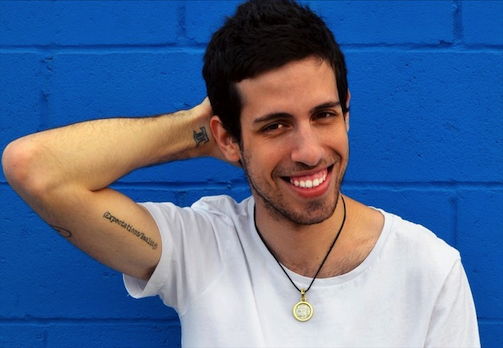
1990 – Adam Silvera is an American author of young adult fiction novels, known for his bestselling novels They Both Die at the End and Infinity Son. Silvera was born and raised in the South Bronx in New York City. His mother, Persi Rosa, is Puerto Rican and a social worker. Silvera started writing when he was around 10 or 11, initially working on fan fiction. Silvera has worked as a barista, bookseller, and reviewer for Shelf Awareness before becoming a published writer. Silvera is open about his struggles with depression, and is openly gay. Movie rights to his fourth novel, What If It's Us, co-authored with Becky Albertalli, sold to Anonymous Content in 2018, with Brian Yorkey as the screenwriter. Originally optioned by HBO in 2019 to be developed into a series written by Chris Kelly and executive produced by J.J. Abrams, Adam Silvera has since announced he will be serving as creator, screenwriter, and executive producer for a tv series adaptation of his novel They Both Die at the End. HBO Max is developing Silvera's novel More Happy Than Not as a one-hour series, with Drew Comins and Silvera serving as executive producers on the project.
1994 – Parson James is an American singer and songwriter. He is best known for his single "Stole the Show", a collaboration with Norwegian producer Kygo. The song became a hit in a number of countries as well as receiving certifications in Italy, New Zealand, Norway, and the United Kingdom. He has collaborated with various artists including on the song "Insomnia" by Audien. On February 5, 2016, he released his extended play release The Temple EP on Sony Music with a full studio album due later on RCA Records. James was born as, Ashton Parson in North Charleston , of an interracial relationship with his father being black and his mother white. His mother, just 16, was kicked out of her parents' house because of the relationship. He and his single mother faced hardship in Cheraw, South Carolina, where he was born and raised and where he grew up singing hymns in church. At 17, he decided to move to New York City, partly because he wanted wider possibilities than his conservative hometown would offer to a bi-racial and gay young man. He signed with RCA Records in early 2015 after the release of his first single, "Stole the Show", a collaboration he co-wrote with Kygo.
1996 – Scott Frantz is an American former college football player who was an offensive tackle for the Kansas State Wildcats. He earned second-team all-conference honors in the Big 12 as a senior in 2019. Frantz attended Free State High School in Lawrence, Kansas, before committing to play at Kansas State University. In 2017, Frantz publicly came out as gay, joining My-King Johnson as two of the first openly gay players in the NCAA Division I Football Bowl Subdivision (FBS). Later that same year, Frantz became the first openly gay college football player to play in a game for an FBS school. He started 51 straight games for the Wildcats and was named second-team All-Big-12 in his senior year in 2019. He went undrafted in the 2020 NFL draft.
2012 – The Danish parliament legalizes same-sex marriage. Same-sex sexual activity was legalized in 1933, and since 1977, the age of consent has been 15, regardless of orientation or gender. Denmark was the first country in the world to grant legal recognition to same-sex unions, in the form of "registered partnerships" in 1989. On June 7, 2012, the law was replaced by a new same-sex marriage law, which came into effect on June 15, 2012. Denmark also recognizes same-sex marriages performed elsewhere. Discrimination on the grounds of sexual orientation was entirely prohibited in 2004. Same-sex couples have been allowed to jointly adopt since 2010. Previously Denmark had allowed stepchild adoptions and limited co-guardianship rights for non-biological parents. Gays and lesbians are also allowed to serve openly in the military. The Kingdom of Denmark also includes two autonomous overseas territories, Greenland and the Faroe Islands, which are generally more socially conservative. However, Greenland legalized same-sex marriage in 2016.
[{(o)}]|[{(o)}]|[{(o)}]|[{(o)}]| [{(o)}]|[{(o)}] Today's Gay Wisdom:Edward Field:
And I do not mind giving it so much credit With life in this city being what it is Each person separated from friends By a tangle of subways and buses Yes my telephone is my joy It tells me that I am in the world and wanted It rings and I am alerted to love or gossip I go comb my hair which begins to sparkle Without it I was like a bear in a cave Drowsing through a shadowy winter It rings and spring has come I stretch and amble out into the sunshine Hungry again as I pick up the receiver For the human voice and the good news of friends
[{(o)}]|[{(o)}]|[{(o)}]|[{(o)}]| [{(o)}]|[{(o)}] |
